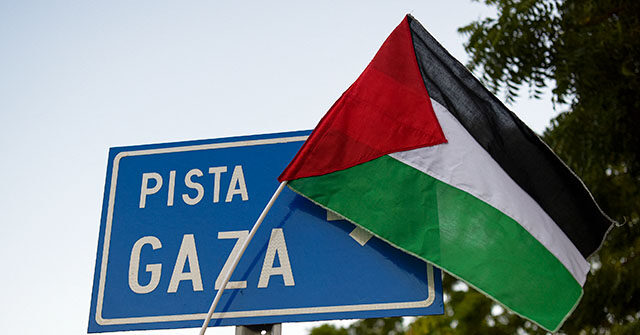On a recent evening, Nicaraguan dictator Daniel Ortega launched a sharp denunciation of Israeli Prime Minister Benjamin Netanyahu, labeling him “Hitler” and “the son of the devil.” This outburst followed Ortega’s decision to sever diplomatic ties with Israel, a move carried out in response to Israel’s military operations against the militant group Hamas. On Friday, Ortega’s government aligned with other leftist regimes, including Venezuela and Cuba, asserting that Israel represents a “fascist and genocidal” entity. The decision was made in the wake of Hamas’s brutal attack that resulted in significant Israeli casualties and violence, prompting condemnation from several authoritarian governments in Latin America.
Ortega’s decision to disassociate Nicaragua from Israel was influenced by a motion passed in the Nicaraguan National Assembly, which operates under heavy regime control. Invoking support from representatives from nations such as Cuba, Mexico, and Russia, the Assembly’s proclamation characterized Israel as a global threat to humanity and an obstacle to peace. Such expressions of solidarity among authoritarian states highlight a growing inclination towards unified opposition against perceived imperialist interests, particularly in situations involving Israel and the United States. This marks the third instance of Ortega cutting relations with Israel, reflecting a long-standing ideological conflict that dates back to the Sandinista revolution in the 1980s.
In a speech commemorating the local police force’s anniversary, Ortega intensified his rhetoric, comparing Israel’s actions under Netanyahu to those of Nazi Germany. He further directed his ire at Ukrainian President Volodymyr Zelensky, suggesting he too was complicit in a fascist agenda and fostering conflict between NATO and Russia. His comments are emblematic of a trend where authoritarian leaders align themselves against Western powers while invoking historical grievances tied to World War II. By making such comparisons, Ortega attempts to position his regime as a champion of the oppressed, framing conflicts through the lens of anti-imperialist sentiment.
Ortega did not shy away from voicing strong criticisms of U.S. policies, alleging that the United States and its European allies manipulated Israel as a tool of imperialism. He condemned what he referred to as a “total war” waged against oppressed peoples, especially the Palestinians, and called for a concerted effort to resist such oppression. His language reflects a broader narrative commonly used by communist leaders to galvanize domestic and international support while promoting a polarized view of geopolitical conflicts.
Expressing gratitude towards allied regimes such as those in China and Russia, Ortega emphasized their support for his administration in various forms, including economic investments and military cooperation. Notably, China’s Belt and Road Initiative has gained significant traction in Nicaragua, where it is seen as a means for economic growth through large-scale infrastructure projects. Meanwhile, Russian assistance has reportedly reinforced the capabilities of Nicaragua’s police forces, directly contributing to the regime’s capacity to suppress dissent and manage opposition movements at home. This dependency on authoritarian allies reinforces Ortega’s isolation from Western nations while simultaneously fortifying the socialist model he champions.
Finally, Ortega underscored the importance of remaining engaged in the struggles faced by oppressed peoples worldwide, specifically regarding the plight of Palestinians. By framing his regime’s policies within a broader context of global anti-imperialism, he seeks not only to solidify his domestic power but also to attract sympathy and support from like-minded nations. The resulting rhetoric serves as a powerful tool in Ortega’s regime, reflecting a commitment to an ideological stance that invocates solidarity against perceived historical injustices while attempting to navigate complex international relations rooted in the legacies of socialism and authoritarianism.

